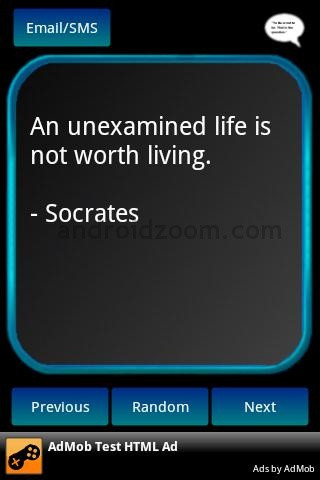50p

Socrates and the Internet
I like New Hampton School’s statement about 21st century education: “Books and a blackboard are no longer enough to prepare students for a globalized world economy.” I would take this a step further and suggest that school teachers who are not committed to making the necessary adjustments to meet this paradigm shift are not adequately preparing their students for success. The skill set needed by our students in the post-secondary world and beyond is different than it was a decade ago. Teaching the same things in the same way doesn’t cut it anymore.
This afternoon our Director of Academics and the Head of our Information Technology Department are flying to Toronto to attend a conference on education and technology (www.educationtechnologysummit.com). Their hope over the next few days is that they will continue to learn more about how technology might best be integrated into the learning environment here at Brentwood. Passionate educators, our teachers are always mindful of the fine balance that must be achieved while imparting knowledge; whether or not it is by the spoken word or by digital interaction, the goal is always to unveil curricula in a meaningful and memorable way.
I love the classical philosophers and how they impacted our approach to education. It could be argued that Plato’s creation of the Academy was the advent of Europe’s first university, and that we may not have had such advances in scientific methodology without Aristotle’s dogged desire to question the ‘essence of things’. But it is the oft quoted term “Socratic Method”, a pedagogical technique in which a teacher attempts to extrapolate or reveal truth through questioning, which is perhaps the most famous term for which the ‘big three’ (Socrates, Plato and Aristotle) were known. As an educator, I love the process of Socratic Method. Hypothesis elimination is all about helping students to think for themselves. Too often, however, this methodology is confused with traditional, lecture-styled teaching. It is not the same. One is designed to impart knowledge and one is designed to have knowledge discovered or revealed.
Adding digital technology into the mix is something that the early philosophers could hardly have anticipated. This being said, discovering knowledge was the key two millennia ago and it remains so today; information technology simply offers another vehicle for this discovery. Students are savvy about the skill sets they will need in the world outside of high school. They want to be using this technology so that they are prepared for what awaits them. As educators, we must balance the desire for a skill set with the accumulation of academic knowledge. Once this balance is achieved within a high school, we are giving our students the tools necessary to succeed within high school and beyond.
This afternoon our Director of Academics and the Head of our Information Technology Department are flying to Toronto to attend a conference on education and technology (www.educationtechnologysummit.com). Their hope over the next few days is that they will continue to learn more about how technology might best be integrated into the learning environment here at Brentwood. Passionate educators, our teachers are always mindful of the fine balance that must be achieved while imparting knowledge; whether or not it is by the spoken word or by digital interaction, the goal is always to unveil curricula in a meaningful and memorable way.
I love the classical philosophers and how they impacted our approach to education. It could be argued that Plato’s creation of the Academy was the advent of Europe’s first university, and that we may not have had such advances in scientific methodology without Aristotle’s dogged desire to question the ‘essence of things’. But it is the oft quoted term “Socratic Method”, a pedagogical technique in which a teacher attempts to extrapolate or reveal truth through questioning, which is perhaps the most famous term for which the ‘big three’ (Socrates, Plato and Aristotle) were known. As an educator, I love the process of Socratic Method. Hypothesis elimination is all about helping students to think for themselves. Too often, however, this methodology is confused with traditional, lecture-styled teaching. It is not the same. One is designed to impart knowledge and one is designed to have knowledge discovered or revealed.
Adding digital technology into the mix is something that the early philosophers could hardly have anticipated. This being said, discovering knowledge was the key two millennia ago and it remains so today; information technology simply offers another vehicle for this discovery. Students are savvy about the skill sets they will need in the world outside of high school. They want to be using this technology so that they are prepared for what awaits them. As educators, we must balance the desire for a skill set with the accumulation of academic knowledge. Once this balance is achieved within a high school, we are giving our students the tools necessary to succeed within high school and beyond.